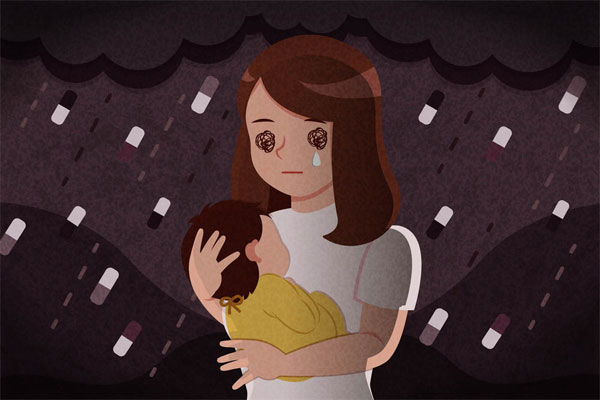Daijiworld Media Network - New Delhi
New Delhi, Aug 26: In a major step toward improving maternal and neonatal health in India, scientists at the ICMR-National Institute for Research in Digital Health and Data Science (NIRDHDS) are preparing to launch a large-scale study to assess the impact of digital peer-based interventions on postpartum depression.
The randomized controlled trial, recently approved by the Health Ministry’s Screening Committee, will be conducted in collaboration with an international research team, including experts from the United States. The study protocol has been published in BMJ Open.
At the heart of the research is Kushal Maa (‘informed mother’) — a culturally tailored, mobile-based interactive education and support group program aimed at reducing the burden of postpartum depression and improving outcomes for mothers and newborns.

“This study will generate critical evidence on how digital peer-led interventions can enhance maternal mental health and neonatal well-being in India,” said researchers from ICMR-NIRDHDS.
The trial will enroll 2,100 pregnant women across Punjab, Madhya Pradesh, and Maharashtra. Participants will be randomly assigned to either the Kushal Maa intervention or the standard care group. The intervention group will take part in 28 interactive sessions—four prenatal and 24 postpartum—delivered weekly via video or audio calls and supplemented by WhatsApp group discussions and educational videos.
Primary outcomes of the study will focus on rates of postpartum depression, exclusive breastfeeding, and the unmet need for postpartum family planning. Secondary measures will assess changes in health knowledge, behaviors, and other maternal and neonatal outcomes.
Despite India’s progress in prenatal and childbirth care, postpartum support remains inadequate. “Maternal mortality stands at 97 per 100,000 live births and infant mortality at 35 per 1,000. While access to perinatal care has grown, quality gaps are most evident after delivery, with only 78% of mothers and 79.1% of newborns receiving care within the first 48 hours,” noted the research team, which includes Dr. Mona Duggal from ICMR-NIRDHDS.
Women aged 18 and above in their final trimester (30–33 weeks of gestation) will be eligible for the study. Data will be collected at four stages: during enrollment, and at 6 weeks, 3 months, and 6 months postpartum.
The study will also analyze the cost-effectiveness and mechanisms behind any observed health impacts, offering valuable insight for potential scale-up across public health systems. The research is expected to conclude by October 2027.